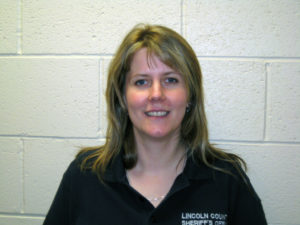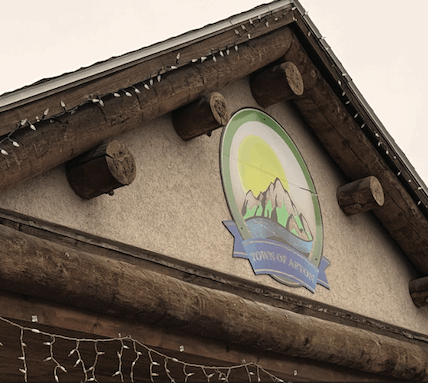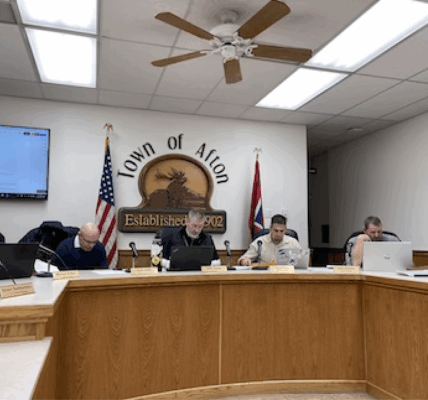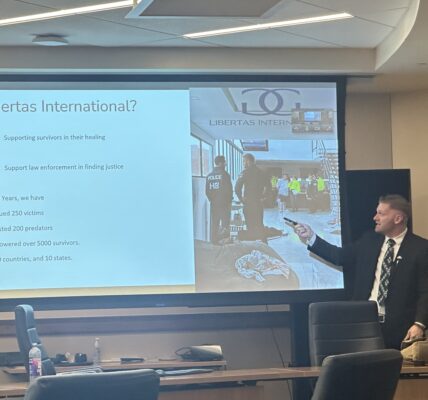◆ Maryanne Christensen talks about the work of a Lincoln Co. Dispatcher.
By Robinson Miles, SVI Media
At its most stressful, any job can feel like it is a matter of life and death. What sets Maryanne Christensen’s job apart is that it is.

Maryanne is the supervisor of the Lincoln County Sheriff’s Office dispatch centers. She and eleven other dispatchers in Afton and Kemmerer receive Lincoln County’s 911 calls. They oversee 4,180 square miles and over 20,000 county residents. About 65% of those residents are in Star Valley and Maryanne says that most of the calls come from Afton, but they receive calls from La Barge to Alpine.
In 2020, Lincoln County dispatchers received 47,914 phone calls, including 4,810 calls to 911, and deployed services 19,796 times. During the dispatchers’ busiest times of the year, including the summer, there is at least one dispatcher at each of the two centers. During the night, multiple times a week, when they expect there to be less happening, there will be one dispatcher covering the entire county.
The biggest towns in the county have their own emergency services that dispatchers can send, but the smallest towns do not. This means that dispatchers need to know where all emergency services come from to help anywhere in the county. This can be a police car, ambulance, or fire truck coming from Afton, Thayne, or Kemmerer; or from across county or state lines depending on what will get to the emergency soonest.
Maryanne has also seen how Lincoln County dispatchers do not have some tools that are available to larger areas. “People think that once they dial 911 we know exactly where they are and exactly what’s happening and we don’t. We don’t have that luxury. I know in big cities they get pretty accurate information because of all the cell towers and all those other things. In our little rural area, we don’t.” To make up for this, they ask a lot of questions, which can be hard since the person on the other end of the line is always in an emergency. “It’s definitely customer service, but we do need your information. We need to know where to send them, what’s going on, that type of thing, for safety of the public and safety of our officers and responders. So we have techniques to get the information that we do need.” One important thing is to keep your composure, but Maryanne does not struggle with this, “I don’t say that it’s hard to keep my cool because I know it’s their worst day.”
Dealing with emergencies every day affects how the dispatchers behave outside of work. Maryanne said, “when we drive around, and I know I’ve talked [about] this with my dispatchers, we notice mile-markers, we notice what the house looks like, we notice some of those things because we’re going to be asking those questions.”
She continued, “I can be in Arizona and I’ll know which highway I’m on and what mile-marker I’m at. It’s just something that we do.” Maryanne has also noticed the job affecting her at home. “My kids grew up with me dispatching and they tell me all the time I’m the most paranoid mother […] that they know of.” Maryanne started to laugh when she said, “they called me the paranoid freak, well they’re grown up and they still call me the paranoid freak.”






